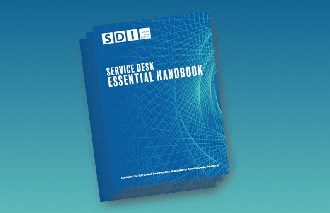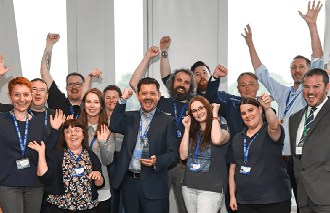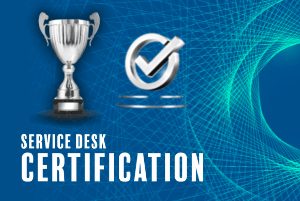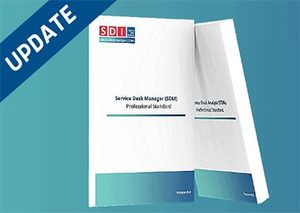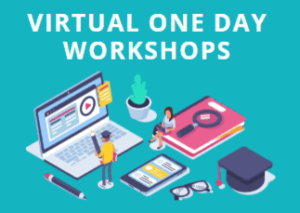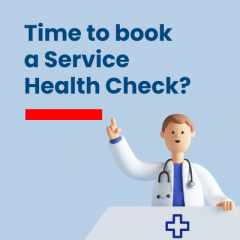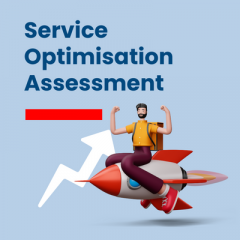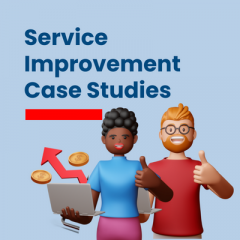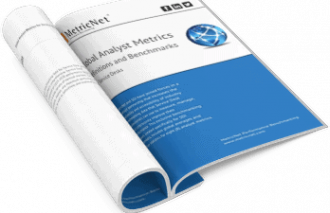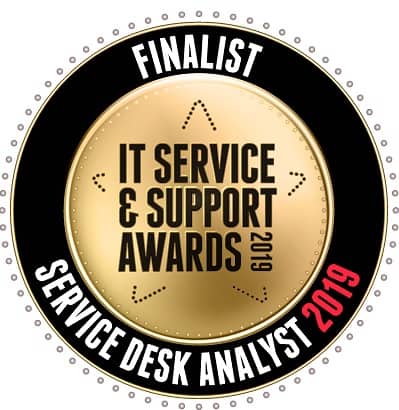
Service Desk Analyst of the Year finalists Adam Wimpenny (Leeds Beckett University), James O’Sullivan (Waitrose) and Luke Bolton (Cegedim RX), answered a few questions ahead of the IT Service & Support Awards later this month…

Adam Wimpenny James O’Sullivan Luke Bolton
What made you decide to enter the awards?
Adam Wimpenny: I entered the awards in early 2018 and I’m proud to say I was shortlisted but did not make the finals. Since then, I was asked to be involved in the implementation of our new ITSM Tool; Ivanti. This developed into a secondment opportunity where I now spend part of my week working on the Service Desk, and the other part developing and improving our processes, workflows and administrating the ITSM tool. My role at Leeds Beckett has developed in such a way that I have been able to drive real change and significant improvements to how we work as a department and how our customers are supported. This has inspired me to enter the awards again as I feel I have developed immensely in the past year.
James O’Sullivan: During our team away day last year, the whole team were asked to vote for who they thought should represent us for this award and I was chosen to represent our 1st Line team. I felt so much pride to be recognised by my peers and the feedback I received from the team was that I am approachable, work hard, am very customer focused and spend a lot of time working with new recruits to ensure they are ready as they start their new careers with the Service Desk.
Luke Bolton: Our Service Desk Manager Julie Brown gave me the nudge I needed to put myself forward, after she identified a few examples of times I’d exceeded expectations and delivered great results for our customers.
What part of the awards process did you enjoy the most?
Adam Wimpenny: Working in our day to day life, we often forget to celebrate success. Having the opportunity to step back and reflect on projects and initiatives that I’ve been involved with in recent months and years was enjoyable. I especially enjoyed then being able to present and share these experiences with others in the industry.
James O’Sullivan: The part of the award process I enjoyed most was preparing and carrying out my presentation in front of the judges. This is because I was looking forward to sharing my journey during my time in the Partnership as well as my personal journey on improving my confidence; I have always struggled with confidence and to help improve this I decided to put myself forward to become a Team Leader to spend more time working closely with partners to help develop myself as well as others. This has really stretched me as a person but I think that I am benefiting from this and my team would also agree.
Luke Bolton: I really enjoyed heading down to Birmingham for the presentation, and the heady mix of nerves and competitiveness whilst I waited to go in and talk to the panel. I’ve not done much public speaking at all in the past, so to prove to myself I could stand up and confidently deliver something like that was quite a proud moment.
Why did you choose IT Support as a career?
Adam Wimpenny: My IT support career began early with solving IT queries for my family. I’ve had an interest in new technologies, gadgets and computers from an early age so IT Support was always going to be a natural fit for me. This then inspired me to pursue it as a career!
James O’Sullivan: I always wanted a career in IT having grown up around technology, from games consoles to mobile devices. I was always keen to get my hands on the latest technology so I could learn how it worked. IT has always been part of my life and so I wanted to progress my career in the Partnership by moving from a branch role to join the IT Service Desk. I am now developing my IT career in a function that is integral to the success of our Partnership.
Luke Bolton: I’ve always had an interest in tech and I thrive on the satisfaction of taking something broken and making it work again. Whether it’s a customer with a defective piece of kit or an internal process that can be streamlined, I can never rest until I’ve reached a positive end result.
In the last 18 months, what has been the most successful initiative you have implemented to help your business improve its performance?
Adam Wimpenny: Implementing and developing our new ITSM tool would have to be the biggest contribution I have made as a whole. One initiative in particular that I have introduced are a number of workflows to help automate and streamline our Service Request offerings. These workflows have significantly reduced wait times and improved the overall customer experience, as well as making analysts lives easier!
James O’Sullivan: Occasionally in the service desk we have a major incident, which can affect different areas of the business. To help make the service desk more efficient, I created a major incident tracker which summarises the areas of the business that are impacted and the symptoms they are experiencing. This allows the Major Incident team to quickly recognise themes which helps identify the root cause quickly saving impact and cost to the business.
Recently I have made changes to this to make us more efficient by using drop down boxes to help save time and to show us on the tracker what is impacted. This will now help us save more time which means we can take more calls, and get the issue resolved that much quicker.
Luke Bolton: I automated my team’s registration/onboarding process by moving away from hand-written/emailed forms and designing an online registration portal, saving us hours of admin work each week.
What are your top 3 tips to make a service desk successful?
Adam Wimpenny:
- Teamwork
- Empathy
- Make a difference
James O’Sullivan:
- Communication
- Well written knowledge articles and procedures.
- Lastly a sense of fun and humour on the service desk.
Luke Bolton:
- Stay positive and have each other’s back - a bad mood spreads like a virus!
- Share the knowledge and don’t be afraid to ask for help – everybody on the desk has their strengths and weaknesses, so simply asking a more knowledgeable colleague a question means you learn for next time so you shouldn’t have to ask again, and you’ve saved time by getting to the fix quicker, instead of slowly working it out on your own.
- Speak up if you can see something that could be improved - there have been several instances where myself and my service desk colleagues have identified business processes that could be streamlined, or created tools that the whole business can use to make their job easier – don’t assume that because you’re a lowly analyst you can’t make a change to how things run.
What one thing do you think really makes you stand out as a support professional?
Adam Wimpenny: Although taking on a second role alongside working on the Service Desk has had its challenges, becoming the Administrator of our ITSM tool as well as working on the Service Desk has allowed me to be a bridge between the IT Department, the Service Desk, and our customers. When working on new improvements or enhancements, I am able to put myself in the shoes of both the customer and a member of the service desk, so that we as analysts can work to our best abilities, while ensuring we provide the best possible customer experience.
James O’Sullivan: One thing that really stands out for me is my people skills. The feedback I have been given from my colleagues is that how approachable I am, as well as my knowledge of the business and service desk. Because of this, I have been given the opportunity to mentor several new starters and help them on their service desk journey. To help my development I have asked for feedback from the new starters I have sponsored so I can prepare for the next new starters joining the service desk.
Luke Bolton: I have a keen attention to detail and focus on quality, and am constantly looking for ways in which to improve and refine the service my entire team gives, whether that’s by developing automation tools or conducting investigations of root causes to ensure things are done right first time, to a consistently high standard.
How are you preparing to evolve your service desk over the next few years? Please share your most exciting plan with us!
Adam Wimpenny: I plan to improve our Self Service Portal in an effort to increase self service usage and to meet the needs of our users. A big part of this will be improving our Knowledge Management and Service Catalogue by continuing to automate routine tasks so that customers can get support 24/7. As well as this I’ll be helping to implement Change Management and Asset Management. I hope that this work will assist in our goal to achieve 3 star accreditation at the next SDC Audit.
James O’Sullivan: Just over a year and a half ago our service desk was only known as the the Waitrose ITSC.
Since then we have become a certified 3 star service desk and have merged with the John Lewis and Group service desks, now becoming a Pan Partnership Service Desk which have absorbed the responsibilities of the previous Service Desk structure, we’re now known affectionately as the PITSC (Partnership IT Service Centre). This have been a tough journey but we are now in a position where we can bring all the best practices which won us the SDI Large Service Desk of the Year award in 2018 to every one of our 85,000 partners.
We are not only looking at our processes but also our ITSM tool to provide a Chat option to contact us and better workflows through our Self Service Portal as well as identifying our user and what IT systems they use as soon as they contact us so we can tailor the service to suit them. We are also challenging ourselves to remain as efficient as possible using robotics to automate workflows with a repetitive outcome and reviewing processes to see how we can do them quicker, simpler or not at all!!
Luke Bolton: As my team often gets bogged down in a lot of repetitive administration tasks, we are formulating plans to automate more processes and empower our customers with tools to stop them having to make basic requests to us in the first place, for example in the quarterly reports we are required to provide. This will allow us to focus on working with Product to relay customer feedback and improve the software, whilst freeing us up to react to any incidents more rapidly and effectively.
What does it mean to you to be a finalist in the ‘Service Desk Analyst of the Year’ category?
Adam Wimpenny: For me this has been my most challenging but also most rewarding year, so to be announced as a finalist for Service Desk Analyst of the year helps me to reflect on what a positive impact my hard work has had. I’m also extremely proud to be representing not only myself, my team and Leeds Beckett University, in such a positive way.
James O’Sullivan: To me it’s a very big deal. I have been on a journey through my time on the service desk and have worked hard within my role. The fact that my colleagues have seen this also and have nominated me and now I’m a finalist, it’s an amazing achievement, one of which I am very proud of. It’s already an achievement to be a finalist, but I would be so proud if I did win.
Luke Bolton: It’s a very proud moment for me – as someone who only really entered the profession less than 2 years ago with next to no IT qualifications/experience, I feel a monumental sense of achievement to have been picked out of so many high-performing applicants.
What advice would you give to anyone entering the awards next year?
Adam Wimpenny: Presenting in front of a panel of judges is never going to be an easy task, but they are there to listen to your story so share your success and experiences. Take the time to reflect on your work and enjoy it!
James O’Sullivan: The advice I would give to any future nominees is no matter what your journey or background, put yourself forward. To be a part of the awards process is an achievement in itself.
Luke Bolton: Don’t be scared! It’s a daunting prospect to begin with, but when you sit down and go through the initial questions you’ll start to remember all the times you’ve excelled at your job. Even if you don’t win, you end up with a huge portfolio of examples that’s sure to come in handy in future interviews or when you’re updating your CV!
What would you do to celebrate if you won ‘Service Desk Analyst of the Year’?
Adam Wimpenny: As well as celebrating on the night of the awards, I think a treat for my Fiancée is in order for listening to the practice runs of my presentation and for my team and management who supported me through not only applying for the award, but through my work over the past year!
James O’Sullivan: I would look forward to celebrating with my work colleagues!! And of course lots of beer will be consumed in a responsible fashion…
Luke Bolton: Drink a few shandies with my colleagues at the Awards Dinner and then spend the prize money whisking my partner and daughter away on a city break.
